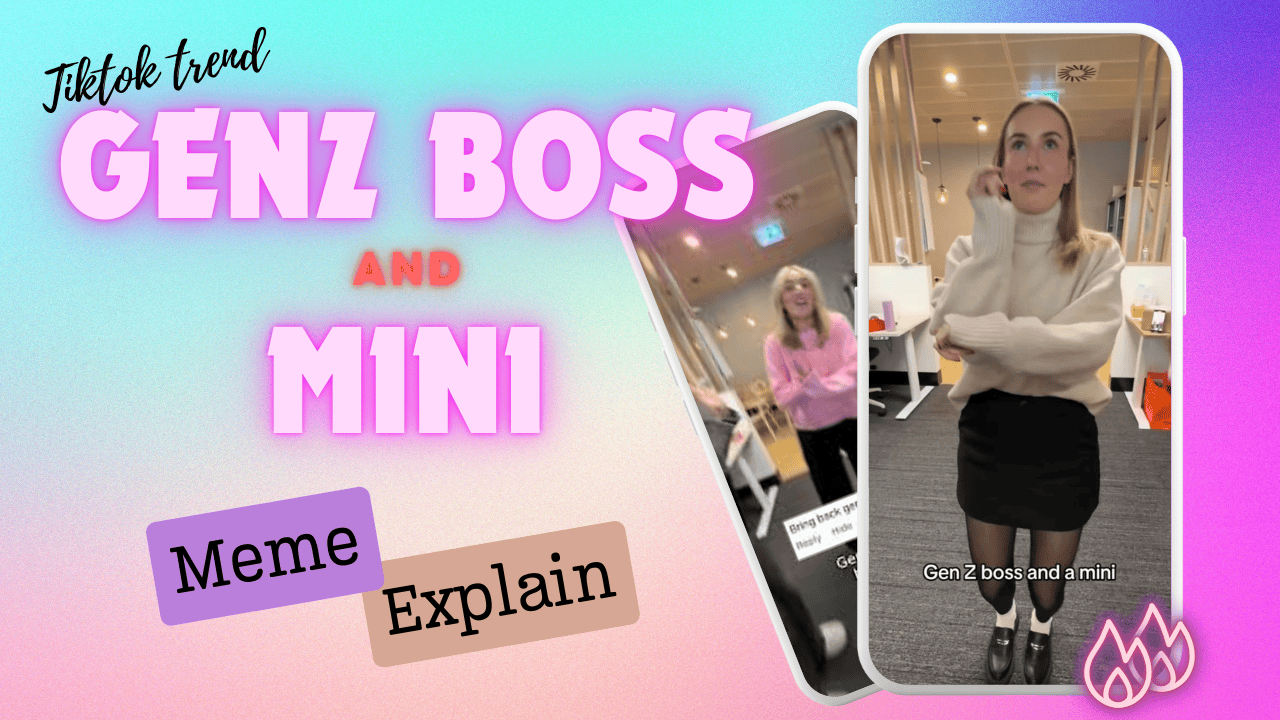TikTok’s ‘Gen Z Boss and a Mini’ meme has taken the internet by storm, blending humor with a touch of generational satire. This viral trend has sparked countless creative takes, with users showcasing their unique spins on what it means to be a “Gen Z boss” alongside a “mini.”
Whether you’ve seen it in your feed or are curious about the buzz, this guide unpacks the origins, meaning, and appeal of the trend that’s dominating social media. Let’s dive into how this meme became a cultural phenomenon!
Where Did The ‘Gen Z Boss And A Mini’ Video Come From?
A recent viral video featuring a group of young women dancing and chanting in an office has sparked widespread debate online. While some viewers praised the clip as a lighthearted glimpse into a fun workplace culture, others criticized it as unprofessional, branding it as “cringe” and associating it with perceived stereotypes of Gen Z behavior in professional environments.
The video, originally posted by the beauty company TBH Skincare, was inspired by a popular TikTok meme and intended to showcase a playful work dynamic. However, the backlash it received highlights the ongoing generational divide in workplace expectations, with critics calling it a reflection of declining professional standards.
This incident has ignited discussions around balancing self-expression with professionalism in modern workplaces. It also underscores the complexities of public perception in the age of social media, where content can quickly go viral and elicit mixed reactions. In response to the criticism, those involved in the video addressed the negative feedback in a follow-up post, further fueling the conversation about workplace culture and generational differences.
Why is it facing backlash?
Although the video was initially shared on social media as a lighthearted and enjoyable activity, the “Gen Z boss and a mini” meme sparked controversy when it began circulating among corporate accounts. While some viewers appreciated the video as a fun and expressive outlet for young women, others criticized it as “cringeworthy.” Corporate audiences also used the clip to mock the “forced fun activities” often seen in workplace events, calling it unprofessional for a work setting.
As the video gained traction, some internet users suggested it symbolized the decline of Gen Z, claiming they had embraced the very behaviors they once mocked in millennials. Millennials have frequently been the subject of Gen Z’s ridicule, often caricatured as overly earnest and fixated on pop culture icons like Harry Potter, Taylor Swift, and The Office.
The backlash escalated further when the video caught the attention of the “manosphere,” an online community known for promoting toxic masculinity and categorizing men as “alphas,” “betas,” and “sigmas.” This led to a sexist twist in the criticism. In response, the women from the original video posted a follow-up clip, playfully addressing the negativity. They danced and chanted to the rhythm of the harsh comments, turning the criticism into a moment of defiance and humor.
Conclusion
The ‘Gen Z Boss and a Mini’ meme exemplifies TikTok’s ability to turn relatable humor into a cultural phenomenon. By capturing the spirit of creativity and playfulness that defines Gen Z, this trend continues to evolve with new interpretations and formats. It highlights how memes can bridge generational humor while reflecting societal quirks. As TikTok remains at the forefront of viral content, trends like these showcase its power to engage and entertain users worldwide.



